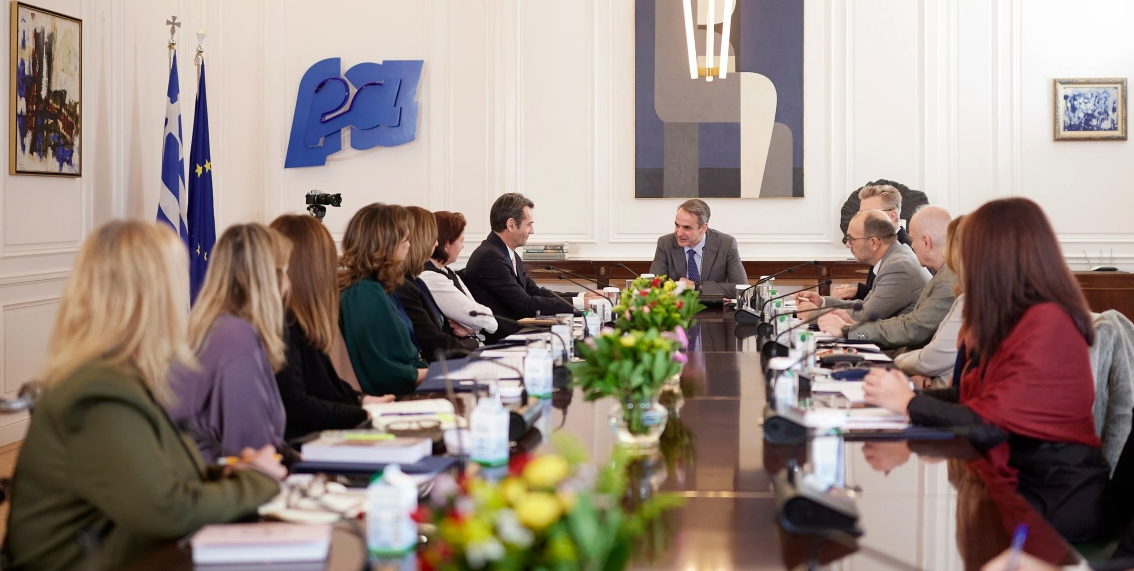After the Prime Minister’s introductory remarks, the Minister of National Economy and Finance, Konstantinos Hatzidakis, presented a bill concerning donations to the state, dormant inheritances, institutions, and public welfare assets.
The proposed bill establishes a new framework for donations to the state, dormant inheritances, institutions, and charitable properties, with specific provisions to address long-standing issues such as:
- Bureaucracy and delays in the registration and processing of public donations.
- The chronic issue of the inability to record, assess, and utilize dormant inheritances.
- A new operational framework for foundations, which will now function as legal entities of private law, removing bureaucracy and ensuring transparency.
- Modernization of the operational framework for the Zappeion Megaron.
Minister of Foreign Affairs, Giorgos Gerapetritis, and Minister of Education, Religion, and Sports, Kyriakos Pierrakakis, presented a bill for the establishment of a public law entity for the Monastery of Sinai. The Monastery of Sinai is a UNESCO World Heritage monument and the world’s oldest continuously operating Christian monastery, founded in 549 AD under Byzantine Emperor Justinian’s law. The bill aims to address its legal standing in Greece and support its continuous fight to preserve its Greek Orthodox character.
Minister of Environment and Energy, Theodoros Skylakakis, along with Deputy Minister Alexandra Sdoukou, presented legislative initiatives for carbon capture and storage (CCS), hydrogen production, and the promotion of biomethane. By June 2026, investments totaling 390 million euros in CCS and hydrogen technologies are planned, with a broader investment goal of 2 billion euros by 2030, utilizing significant European funds.
The proposed framework regulates activities not currently covered by existing legislation, including CO2 capture and transportation, and establishes a monitoring mechanism to ensure compliance. Skylakakis emphasized that the domestic production of renewable hydrogen will play a crucial role in meeting industrial energy demands and reducing dependency on imports.
In addition, the bill for biomethane production aims to create a regulatory framework that supports the best utilization of energy-rich raw materials, ensuring sustainable growth and energy independence.
Minister of Social Cohesion and Family, Sofia Zacharaki, presented initiatives to strengthen the legal framework for social housing and public-private partnerships to provide affordable housing options, particularly through the renovation and construction of properties on state land in urban areas.
Minister of Justice, Giorgos Floridis, presented a bill to improve the legislative framework of the National School of Judges, addressing the certification of judicial candidates, the collaboration with international bodies, and the enhancement of judicial staff recruitment procedures.
Lastly, Pavlos Marinakis, the Deputy Minister to the Prime Minister, introduced a bill aimed at enhancing transparency and accountability in both print and electronic media, following the significant reform of law 5005/2022. The bill seeks to tighten regulations on media organizations to ensure compliance with legal standards for transparency and to safeguard journalists’ rights through the introduction of signed articles and greater oversight on state subsidies for media outlets.
These legislative efforts align with the government’s broader reform agenda aimed at enhancing transparency, efficiency, and sustainability across various sectors.
Ask me anything
Explore related questions





